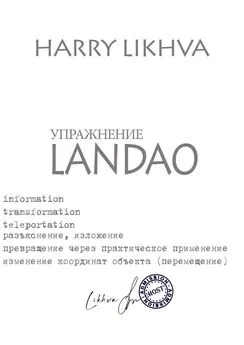Harry Turtledove - Give me back my Legions!
- Название:Give me back my Legions!
- Автор:
- Жанр:
- Издательство:неизвестно
- Год:неизвестен
- ISBN:нет данных
- Рейтинг:
- Избранное:Добавить в избранное
-
Отзывы:
-
Ваша оценка:
Harry Turtledove - Give me back my Legions! краткое содержание
Give me back my Legions! - читать онлайн бесплатно полную версию (весь текст целиком)
Интервал:
Закладка:
“Thanks,” Arminius said once more. He hurried off with his men to the northwest corner of the encampment, where then- always pitched their tents. In every Roman camp ever made, auxiliaries were quartered in the northwest and northeast corners. The Romans had done things that way for centuries. They were a tidy folk; everything had its place among them. And, once they found a way of doing things that worked, they stuck with it.
He found his man there - or rather, his man found him. “Arminius!” someone called.
“Hail, Chariomerus,” Arminius answered, recognizing him at once. He hurried up and clasped the other man’s hand. “Why have you come? Are Mother and Father all right?”
“As far as I know,” Chariomerus answered. He and Arminius weren’t close kin, though they’d grown up in the same little village. “They were when I set out, anyhow.”
“Well, that’s the biggest load off my mind,” Arminius said. “Come on with me and get some supper - you’ll be hungry after so long on the road.”
“You’re right about that, by the gods.” Chariomerus and Arminius got bowls of barley porridge and cups of wine from the cooks. Chariomerus wolfed his down. “I’m still hungry,” he said when it was gone. “I want some boiled meat, to let my stomach know it’s got something in there.” He drank. “Wine’s not bad, though.”
“No, it isn’t,” Arminius said. “The Romans think eating a lot of meat makes you slow. Maybe they’re even right - I don’t know. Going without doesn’t bother me the way it did: I know that. I’ve got used to doing things Roman-style.”
“I suppose you have to, but. . . .” Chariomerus let his voice trail away, then resumed: “Better you than me.”
“I’m not Flavus,” Arminius snapped. “I’m - “ He shook his head like a man bedeviled by gnats. There were times when he didn’t know what he was. “Give me your news. It’s not my parents, and I thank the gods for that. So what did bring you from home?”
Chariomerus drained the cup. He looked as if he wanted more wine, too, to help grease his tongue. At last, with a sigh, he said, “Well, it has to do with Segestes.”
Arminius grunted. Segestes was another chief among the Cherusci. He liked and trusted the Romans more than Arminius did. More to the point, he was also Arminius’ fiancée’s father. “What about him?” Arminius demanded. “Is he well?”
“He was when I left,” Chariomerus said, as he had when talking about Arminius’ mother and father. The newcomer didn’t seem eager to go on.
After silence stretched, Arminius said, “If you keep me waiting any more, you’ll make me angry. You didn’t come all this way not to tell me something.”
“You’re right.” Chariomerus sighed. He still hesitated. At last, he brought the words out in a rush: “He’s gone and betrothed Thusnelda to somebody else.”
People said you didn’t always feel it right away when you got wounded. Arminius hadn’t found that to be true. Every time a sword cut him or an arrow pierced his flesh, it hurt like fire. But now he just stared, his mouth foolishly gaping. He’d heard the words, but they didn’t want to make sense inside his head.
“Who? Who?” he asked, sounding like an owl. An owl in daylight was the worst of omens - everybody knew that. What kind of omen was it, though, when someone took your woman away from you?
“Tudrus,” Chariomerus said.
The grinding noise Arminius heard was his own teeth clashing together like millstones. He needed a distinct effort of will to make himself stop. Tudrus was a man of about Segestes’ age. He was also friendly to the Romans. All the same . . . “Why?” Arminius seemed to have trouble coming out with more than one word at a time.
“I don’t know for sure. He doesn’t tell me his reasons,” Chariomerus replied. “My best guess is, he doesn’t think you’ll come back from this war. He wants Thusnelda to give him some grandchildren . . . and Tudrus has been one of his sworn companions for years.”
“He should never have promised her to me, then,” Arminius said. “Does he think I have no honor, to take an insult like this lying down?”
“What will you do?” Chariomerus sounded apprehensive.
“Go home and set things right, of course,” Arminius answered. “What do you expect me to do when you bring me news like that? Just stand here and thank you for it and go about my business?” He looked around and dropped his voice. “Do you take me for a Roman?”
“No, of course not.” Had Chariomerus said anything else, Arminius would have killed him. The newsbringer also lowered his voice: “Is it true what they say about Roman women?”
“Not enough Roman women up here for me to know one way or the other. The stories are pretty juicy, but stories usually are.” Arminius set a hand on his fellow tribesman’s shoulder. “Now I have to tell the Romans I am leaving. They will not be happy to hear it, but” - he shrugged - “what can you do?”
The senior Roman officer with this detachment was a military tribune named Titus Minucius Basilus. He was short and lean and bald, with pinched features, a blade of a nose, and eyes cold as a blizzard. Arminius interrupted him at supper, which did nothing to improve his mood. He redeemed some of his bad temper with reckless bravery.
“You have to go, you say?” he growled when Arminius finished. “Just like that? In the middle of a campaign?”
“I am sorry . . . sir.” Arminius could use Roman notions of politeness and subordination, even though he scorned them. “It touches my honor. What would you do if your betrothed’s father gave her to another man?” He knew he was making a hash of his subjunctives, and hoped Minucius could follow him.
“I’d start a lawsuit against the double-dealing wretch,” Minucius answered. “He’d be sorry by the time I got through with him, too.”
His supper companions nodded. Arminius had only a vague notion of what a lawsuit was: a battle with words instead of swords was as close as he could come. He didn’t see the point. “We have not got this in my country,” he said.
“No, I suppose not.” The Roman eyed Arminius as he sipped from a silver winecup. Whatever else he was, he was sharp. “If I tell you you can’t go, you’ll up and leave anyway, won’t you?”
“It is my honor . . . sir,” Arminius repeated. Talking to a different officer, he might have asked if the fellow understood the word. Something told him that would be a very bad idea with Titus Minucius Basilus.
He would make a dangerous enemy, dangerous as a viper underfoot. Picking his words with care, Arminius went on, “How can I fight as well as I should, sir, when all I think about what this man does - uh, has done - to me?”
“You wouldn’t be the first man in that kind of mess - or the last.” The military tribune drank more wine. At last, still without warming up, he brusquely dipped his head. “Go on. Go home. If we can’t whip the Pannonians because we’re short one auxiliary officer, we don’t deserve to win, by Jupiter. Straighten out your woman troubles and then come back to us. They’ve already made you a Roman citizen, but we’ll make you a real Roman.”
He meant it for a compliment. Arminius reminded himself of that. He also reminded himself he’d got what he wanted - and more easily than he’d expected, too. Minucius was right: he would have deserted had he heard no rather than yes. Since he’d heard yes. . . .
He bowed, red-gold locks spilling down off his shoulders as he bent forward. “My thanks, sir. My many thanks, sir. I am in your debt.”
“Maybe you will pay it one day - if not to me, then to Rome,” Minucius said.
“Maybe I will.” Arminius bowed again. “Please excuse me. I will not interrupt your supper anymore.” He turned and hurried off, conscious as he went of Minucius’ eyes boring into his back.
“Well?” Chariomerus said when Arminius got back to the auxiliaries’ tents.
“It is very well, in fact,” Arminius said. “He will let me go. He saw I would go whether he let me or not. Sometimes it is easier to lean in the direction the wind is already blowing.”
Chariomerus smiled in glad surprise. “I did not think it would be so simple.”
“Neither did I. Some god must be looking kindly on me,” Arminius answered. “And that can only mean the god is scowling at Segestes. How could it be otherwise? He has broken faith. But he won’t get away with it.”
“Thusnelda will be glad to have you instead of Tudrus,” Chariomerus said. “He is an old man - he has to be forty-five if he’s a day.”
“So she will.” Arminius didn’t love Thusnelda. Love, as far as he could see, was something the Romans had invented to give themselves an excuse for infidelity. But he’d known her since they were children. He liked her, and thought she liked him. Segestes had no right to rob him of her. No right at all.
When Varus governed Syria, the immemorial antiquity of the countryside impressed him. As he’d thought while conferring with Augustus, it made Italy, where even the oldest towns had but a few centuries on them, seem downright juvenile by comparison. As he traveled north to the Rhine frontier to take up his new province, he thought about that often. He didn’t know whether to laugh or to cry.
Oh, Gaul had had towns before the Roman conquest. But they hadn’t been towns with civilized amenities. No theaters for plays. No amphitheaters for spectacles, gladiators, and beast shows. No public baths. No proper law courts. No colonnaded and porticoed public squares. And, of course, the barbarians had gabbled away at one another in their own incomprehensible language, not in Latin - to say nothing of Greek.
More than half a century of Roman rule had brought some changes. A few of the locals had forsaken tunic and trousers for the toga. Here and there, a proper Roman building- -stone with a tile roof- -sprouted amidst timber and wattle-and-daub and thatch. But it would be a long time before this country grew civilized, if it ever did.
Vetera, on the west bank of the Rhine, had more than enough Romans to make a good-sized town. It was the headquarters of Legions XVII, XVIII, and XIX. But legionaries, however necessary they were in the grand scheme of things, weren’t . . . interesting people.
Varus had been used to gossip about matters of state, gossip about Augustus’ family (his own family, thanks to the marriage connection - not that Claudia Pulchra was daft enough to come up to the edge of the world, though she’d gone with him to Syria), and gossip about the other great and powerful men - and women - of Rome.
In Vetera, he got gossip about an ambitious military tribune jockeying for promotion, gossip about a centurion’s drunken German mistress, gossip about what happened when a prefect’s Gallic mistress found out about his German mistress, gossip about the outrageous way a wine merchant overcharged for the swill he swore was Falernian (no, some things didn’t change from Rome to Vetera, not even a little bit).
Power. Sex. Money. What else was there to gossip about? But when the power was minuscule, when the sex was with women whose fair tresses reminded Varus that whores in Rome were required by law to wear blond wigs, when the money was chicken feed, how were you supposed to get excited about any of it?
People in Vetera did. Varus imagined that people in any provincial town had their tiny squabbles and feuds and scandals and triumphs. The trouble was, the Roman officers in Vetera expected Varus to be interested in theirs. And so he had to be, or at least to pretend to be. Hypocrisy wasn’t the least important art a high-ranking Roman needed to cultivate.
Читать дальшеИнтервал:
Закладка:







